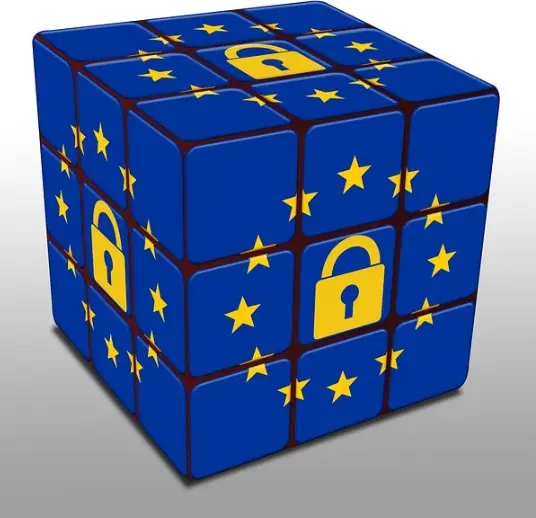The GDPR, or General Data Protection Regulation, is a set of rules that regulate the processing of personal data of individuals within the EU, regardless of where the data is processed or stored. It replaces the Data Protection Directive of 1995 and has been designed to strengthen data protection, enhance data privacy, and give individuals more control over their personal data.
The GDPR is a significant update to data protection laws in the EU, and it has far-reaching implications for businesses that operate within the EU or process the personal data of EU citizens. The regulation aims to harmonize EU data protection laws and give individuals greater control over their personal data.

The General Data Protection Regulation Explained
The GDPR sets out specific requirements for obtaining, storing, processing, and sharing data which applies to all businesses that process data of individuals within the EU, regardless of their location. Any company that collects, processes, and stores personal data must do so transparently and be able to justify why they need this data.
The GDPR introduces new rights for individuals, such as the right to be forgotten and the right to access their data, and imposes stricter obligations for businesses, including more explicit consent from individuals, mandatory notification of data breaches, and tougher penalties for non-compliance.
The GDPR is designed to ensure that individuals have greater control over their personal data and to provide them with more transparency and choice over how their data is collected, processed, and used. It also aims to create a level playing field for businesses that process personal data, regardless of their size or location.
Key Principles of the GDPR
The GDPR establishes a set of principles to guide the processing of personal data, such as data minimization, which means that businesses should only collect and store personal data that is essential and for no longer than necessary. It also mandates that companies provide clear and transparent information about how personal data is collected and processed and obtain explicit consent from individuals before processing their data for specific purposes.
Furthermore, the GDPR includes accountability and governance requirements, such as appointing a Data Protection Officer (DPO) for certain companies and comprehensive privacy policies explaining how the company collects, stores, and uses personal data. Companies that handle personal data must also implement technical and organizational measures to ensure the security of personal data, including measures to protect against unauthorized access, accidental loss, or destruction. This includes measures such as encryption, access controls, and regular security assessments.
The GDPR is a complex regulation that requires businesses to take a proactive approach to data protection and to ensure compliance with the regulation’s requirements. Failure to comply with the GDPR can result in significant fines and reputational damage, so it is essential that businesses take the necessary steps to ensure that they are compliant with the regulation.
How the GDPR Affects US Businesses
The General Data Protection Regulation (GDPR) is a regulation that was passed by the European Union (EU) in 2016. It was designed to regulate the processing of personal data of individuals within the EU. The GDPR came into effect on May 25, 2018, and has since significantly impacted businesses within and outside the EU.
Any US business that processes the personal data of individuals within the EU, regardless of where the business is located, is subject to the GDPR. This extraterritorial scope means that US businesses with EU customers must comply with the GDPR.
Extraterritorial Scope of the GDPR
The GDPR applies to all companies that collect, process, or store data of individuals within the EU. In essence, any company that has a physical presence in the EU or that offers goods or services to individuals within the EU, whether paid or free of charge, must comply with the GDPR.
This means that if a US business processes the personal data of individuals within the EU, for example, by selling products online to EU customers, it is necessary for the US business to comply with the GDPR. This includes ensuring that personal data is collected and processed in accordance with the GDPR’s requirements.

Data Processing and Consent Requirements
The GDPR requires companies to obtain explicit consent from individuals before processing their data. This consent must be freely given, specific, informed, and unambiguous. Moreover, the GDPR requires businesses to provide users with a clear and easy-to-understand mechanism to withdraw their consent. They must agree to stop processing the user’s data if their consent is no longer given.
Another important aspect of the GDPR is that it requires data processors to be transparent about their data processing activities. This means that businesses must inform individuals of the types of data being collected, how it is being used, and who is processing it. Businesses must also inform users of their rights under the GDPR and must be prepared to respond to requests to access, change, or delete personal data.
Data Protection Officer (DPO) Requirements
Some US businesses will be required to appoint a Data Protection Officer (DPO) to oversee their data protection practices. The GDPR mandates that businesses that handle a large volume of personal data must have a DPO. These individuals must have expert knowledge of data protection laws and practices and will be responsible for overseeing the company’s GDPR compliance efforts.
Overall, the GDPR has had a significant impact on businesses around the world, including those located in the US. US businesses that process the personal data of individuals within the EU must ensure that they comply with the GDPR’s requirements, including obtaining explicit consent, being transparent about data processing activities, and implementing appropriate security measures. Failure to comply with the GDPR can result in significant fines and legal action, so it is essential that US businesses take the necessary steps to ensure compliance.
The Consequences of Non-Compliance
Despite the increasing number of data protection measures, many companies are still not compliant with the GDPR. The consequences for non-compliance can be severe for US businesses.
Fines and Penalties
The GDPR grants regulators the power to impose fines of up to €20 million or 4% of global turnover, whichever is higher, for the most severe breaches of the regulation. This can result in significant financial losses for businesses not complying with the GDPR.
Reputational Damage
Non-compliance with the GDPR can not only be costly but can also damage a business’s reputation. Businesses that fail to comply with the GDPR risk losing customers and suffering reputational harm.
Loss of Consumer Trust
Given the increasing focus on data protection and privacy, businesses that do not comply with the GDPR risk losing the trust of their customers. This can lead to a loss of business and may ultimately lead to the failure of the company.
Steps for US Businesses to Achieve GDPR Compliance
US businesses that process the personal data of individuals within the EU must understand how the GDPR applies to them and take the necessary steps to achieve compliance.
Conducting a Data Audit
The first step for US businesses is to hire a professional firm like PPGS ™ to conduct a data audit to identify areas where they collect, process, and store personal data. This will help businesses to identify their GDPR compliance gaps and develop a plan to address them.
Implementing Privacy by Design
US businesses must ensure that the GDPR principles are integral to their business processes. Privacy by design requires businesses to consider privacy throughout their product and service development processes and to implement privacy-friendly default settings.
Establishing a Data Protection Officer (DPO)
US businesses that handle a large volume of personal data of individuals within the EU must have a DPO to oversee their data protection practices. The DPO must have expert knowledge of data protection laws and practices and will be responsible for overseeing the company’s GDPR compliance efforts.
Creating and Updating Privacy Policies
US businesses must create and regularly update their privacy policies to reflect their GDPR compliance efforts. Privacy policies should be concise, transparent, and easy to understand and should provide information to individuals on how their personal data is being used. You can learn more about drafting a clear and simple privacy policy with PPGS ™.
Conclusion
The GDPR is a landmark regulation that affects businesses around the world, including US businesses that process the personal data of individuals within the EU. Failure to comply with the GDPR can result in significant financial losses, reputational damage, and loss of consumer trust. US businesses must understand how the GDPR applies to them, conduct a data audit, implement privacy by design, establish a DPO, and update their privacy policies to ensure compliance with the GDPR.
